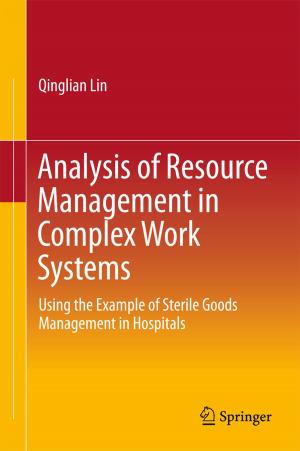A Comparative Study of Funding Shareholder Litigation
Nonfiction, Reference & Language, Law, Commercial, International| Author: | Wenjing Chen | ISBN: | 9789811036231 |
| Publisher: | Springer Singapore | Publication: | April 25, 2017 |
| Imprint: | Springer | Language: | English |
| Author: | Wenjing Chen |
| ISBN: | 9789811036231 |
| Publisher: | Springer Singapore |
| Publication: | April 25, 2017 |
| Imprint: | Springer |
| Language: | English |
This book studies the funding problems with shareholder litigation through a functionally comparative way. In fact, funding problems with shareholder lawsuits may largely discourage potential shareholder litigants who bear high financial risk in pursuing such a claim, but on the other hand they may not have much to gain. Considering the lack of incentives for potential shareholder claimants, effective funding techniques should be in place to make shareholder actions function as a corporate governance tool and discipline corporate management. The book analyzes, among others, the practice of funding shareholder litigation in the Australia, Canada, the UK, the US and Israel, and covers all of the typical approaches being used in financing shareholder litigation in the current world. For instance, Israel and Canada (Quebec and Ontario) are probably unique in having a public funding mechanism for derivative actions and class actions, while Australia is the country where third party litigation funding is originated and is growing rapidly. Based on this comparative research, the last part of this book discusses how to fund shareholder litigation in China in context of its social and legal background and what kind of problems need to be solved if certain funding techniques are used.
This book studies the funding problems with shareholder litigation through a functionally comparative way. In fact, funding problems with shareholder lawsuits may largely discourage potential shareholder litigants who bear high financial risk in pursuing such a claim, but on the other hand they may not have much to gain. Considering the lack of incentives for potential shareholder claimants, effective funding techniques should be in place to make shareholder actions function as a corporate governance tool and discipline corporate management. The book analyzes, among others, the practice of funding shareholder litigation in the Australia, Canada, the UK, the US and Israel, and covers all of the typical approaches being used in financing shareholder litigation in the current world. For instance, Israel and Canada (Quebec and Ontario) are probably unique in having a public funding mechanism for derivative actions and class actions, while Australia is the country where third party litigation funding is originated and is growing rapidly. Based on this comparative research, the last part of this book discusses how to fund shareholder litigation in China in context of its social and legal background and what kind of problems need to be solved if certain funding techniques are used.















